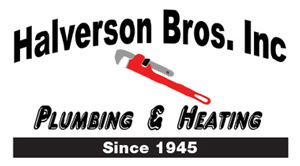
We spend a lot of time in our homes. In fact, the Environmental Protection Agency (EPA) has estimated being inside makes up 90% of our time. Having said that, the EPA also has found your indoor air can be three to five times dirtier than outside your home.
That’s since our residences are securely sealed to increase energy efficiency. While this is good for your utility expenses, it’s not so good if you’re among the 40% of the population with respiratory allergies.
When outdoor ventilation is restricted, pollutants like dust and volatile organic compounds (VOCs) could get stuck. As a consequence, these pollutants may aggravate your allergies.
You can boost your indoor air quality with fresh air and usual housework and vacuuming. But if you’re still struggling with symptoms while you’re at home, an air purifier could be able to help.
While it can’t eliminate pollutants that have gotten trapped in your furniture or carpeting, it may help freshen the air moving throughout your house.
And air purification has also been scientifically proven to help lessen some allergic symptoms, according to the American College of Allergy, Asthma and Immunology. It could also be appropriate if you or a loved one has lung trouble, such as emphysema or COPD.
There are two models, a portable air purifier or a whole-home air purifier. We’ll discuss the distinctions so you can figure out what’s appropriate for your house.
Whole-House Air Purifier vs. Portable Air Purifiers
A portable air purifier is for a single room. A whole-house air purifier accompanies your HVAC system to treat your entire house. Some kinds can clean by themselves when your HVAC system isn’t running.
What’s the Best Air Purifier for Allergies?
Go after a model with a High Efficiency Particulate Air (HEPA) filter. HEPA filters are placed in hospitals and deliver the best filtration you can find, as they catch 99.97% of particles in the air.
HEPA filters are even more powerful when combined with an ultraviolet (UV) germicidal light. This mighty blend can wipe out dust, dander, pollen and mold, all of which are standard allergens. For the best in air purification, consider a system that also has a carbon-based filter to reduce household vapors.
Avoid getting an air purifier that creates ozone, which is the main ingredient in smog. The EPA cautions ozone might aggravate respiratory problems, even when emitted at small settings.
The Allergy and Asthma Foundation of America has made a listing of questions to ask when getting an air purifier.
- What can this purifier extract from the air? What doesn’t it remove?
- What’s its clean air delivery rate? (A better figure means air will be purified more rapidly.)
- How frequently does the filter or UV bulb need to be replaced]? Can I do that on my own?
- How much do new filters or bulbs cost?
How to Decrease Seasonal Allergy Symptoms
Want to receive the {top|most excellent|best] results from your new air purification system? The Mayo Clinic recommends doing other measures to limit your exposure to things that can trigger seasonal allergies.
- Stay in your home and keep windows and doors closed when pollen counts are high.
- Have other family members mow the lawn or pull weeds, since these jobs can irritate symptoms. If you are required to do these chores yourself, you might want to consider wearing a pollen mask. You should also shower right away and change your clothes once you’re finished.
- Avoid stringing up laundry outdoors.
- Run your air conditioner while at home or while you’re on the road. Consider adding a high efficiency air filter in your residence’s heating and cooling equipment.
- Equalize your home’s humidity levels with a whole-house dehumidifier.
- Hardwood, tile or linoleum are the suggested flooring materials for reducing indoor allergens. If your home has carpet, use a HEPA filter on your vacuum cleaner.
Let Our Professionals Take Care of Your Indoor Air Quality Requirements
Prepared to progress with adding a whole-house air purifier? Give our professionals a call at 715-578-8046 or contact us online to request an appointment. We’ll help you locate the best equipment for your home and budget.






